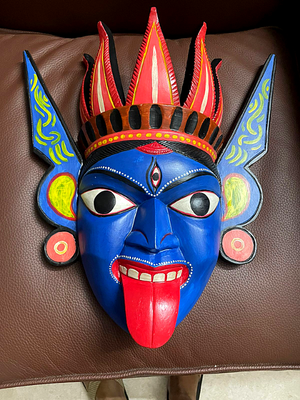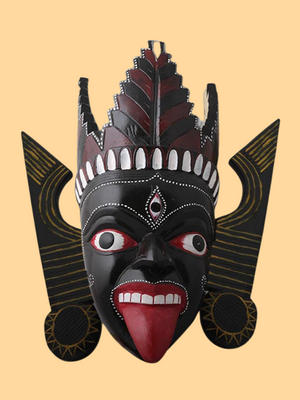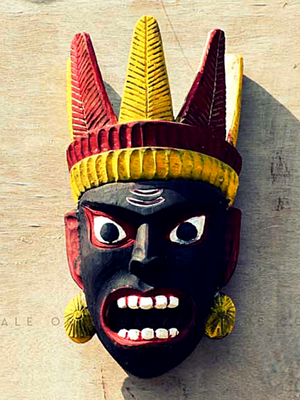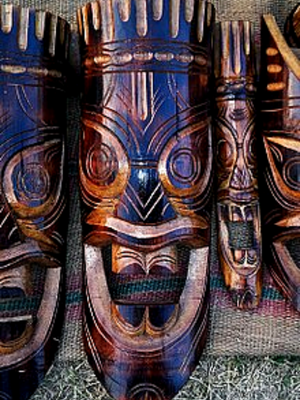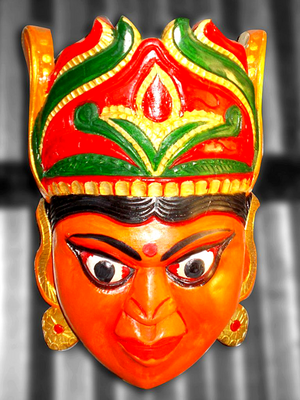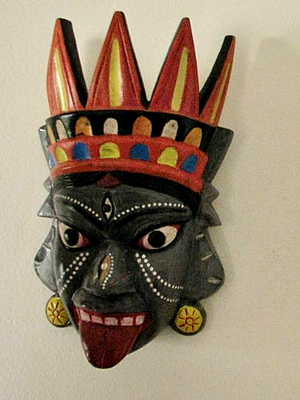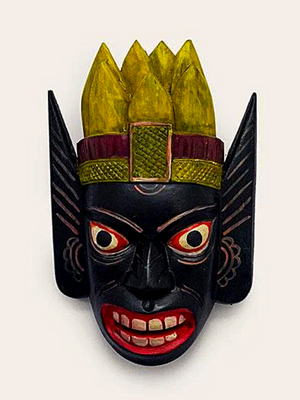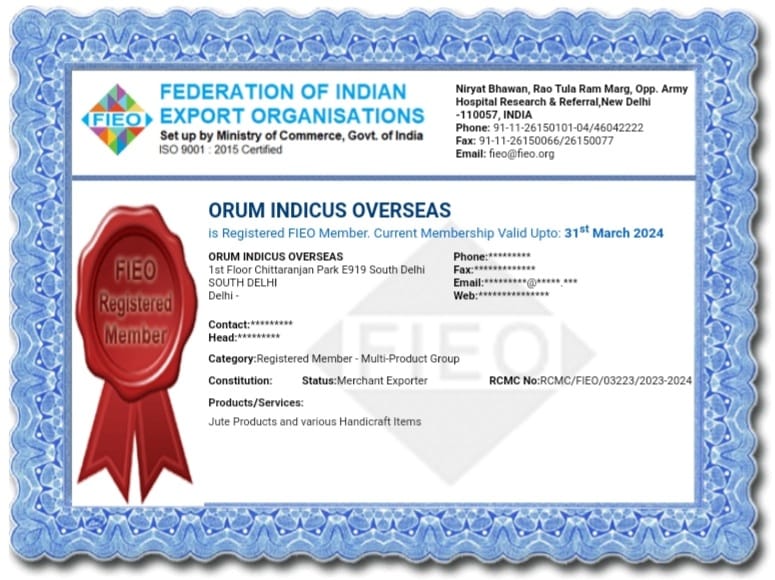
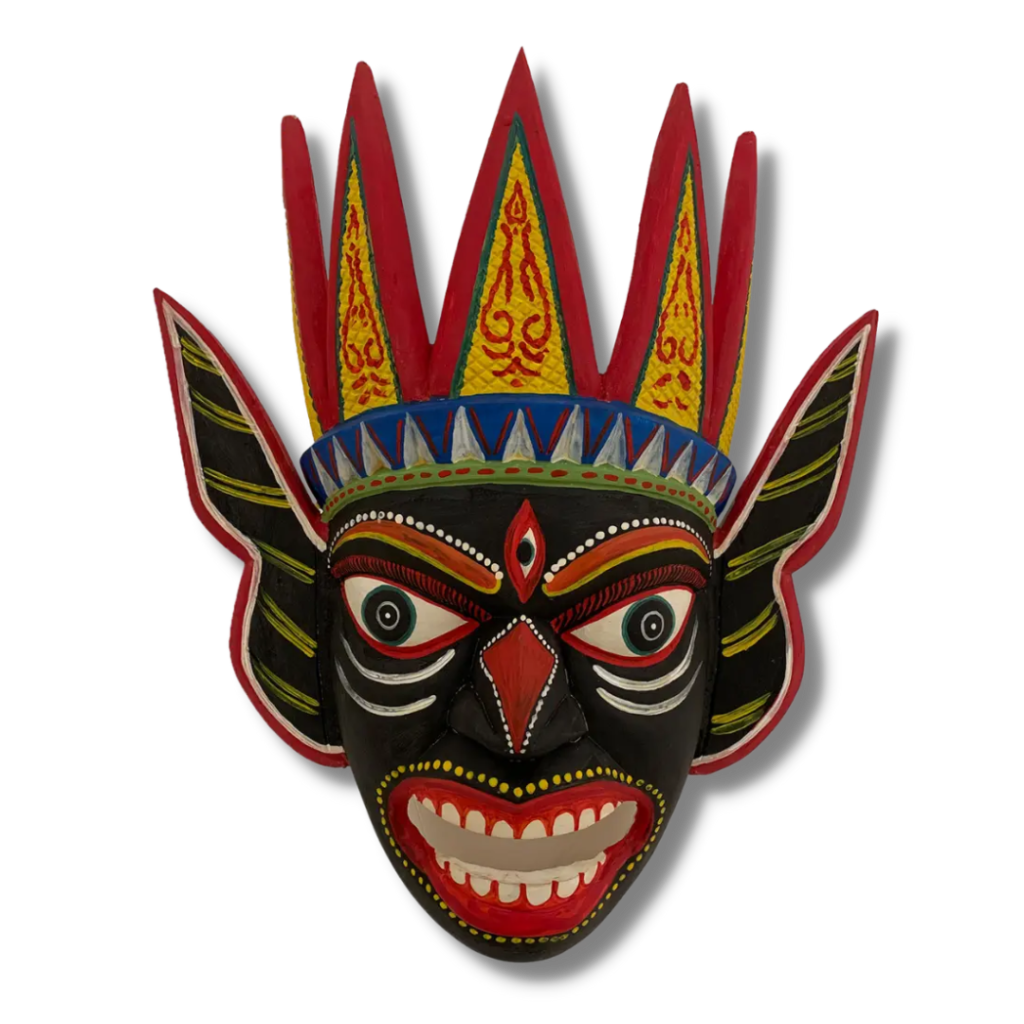
Gomira Wooden Masks - The Pride of Kushmandi
Kushmandi in Dakshin Dinajpur district, located in the province of West Bengal, India is the main centre of exquisite wooden masks which are known as Kushmandi masks or Gomira masks. The tradition of these brilliant looking Gomira masks is believed to be 300 years old; some craftsmen believe that the dance form is as old as the beginning of the KaliYuga. It’s believed to have originated from the Mahayana Buddhism. Ceremonial dance wearing masks is common in Buddhism. Some also believe that the Gomira dance form, also called as Mukha Naach or Mukha Khel draws inspiration from local animist cults of the tribal communities residing in this region for centuries. These flamboyant wooden masks are fully handcrafted by our local artisans that hold a dominant place in Gomira dance which are worn by the dancers during their performance. Gomira is a divine dance style that has two forms – Gomira and RamBanabas.
OUR UNIQUE OFFERINGS OF TRADITIONAL AND SUSTAINABLE ARTISTRY
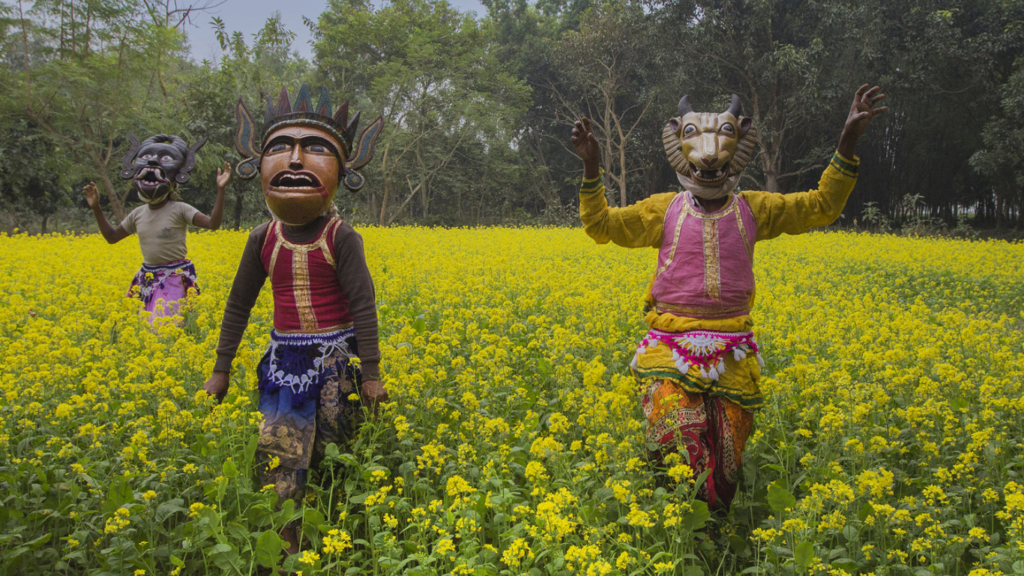
These masks have big mouths that are hollow to allow the dancers to see through them while others have holes in the eyeballs or narrow openings below the eye area. The dancers who perform the Gomira dance are all males and they wear masks of characters they portray; the characters can be both male and female. In most of the cases the artists who make masks are the dancers themselves; our artists are the true virtuosi whose multifaceted talents get an expression thorough their transcendental Gomira dance performances. For our artists, Gomira masks are not just a work of art but they consider that the masks are a way of expressing their devotion and veneration towards Divinity; for them these masks are a source of luck and prosperity to their families. Unlike Chhau masks of Purulia district of West Bengal that are made of paper pulp and are light in weight, the Gomira or Kushmandi masks are quite weighty as they are made entirely of wood. Our artists’ favourite wood is gamhar or Gmelina arborea and they also use neem or Azadirachta indica for crafting the Gomira masks.
Mahogany and mango woods are also used depending on the availability. The wood to be used for making the masks is first soaked and then they are dried in the sun. The artists always ensure that they season the wood beforehand as this would make the wood crack resistant and would also prevent any sort of infestation thus making the masks last for a longer duration of time. To make the wood to termites and bugs, the artisans treat it with boric acid, borax and copper sulphate in a proportion of 3:4:5. After seasoning and chemical treatment, the artists cut it and curve motifs and designs on the block of wood. For painting the masks the artists generally use natural dyes – from teak red dye is obtained, beans gave green dye, violet is obtained from blackberry, for black colour the artists took help from neem tree. Nowadays the artisans also rely on chemical based paints and dyes. The artists use hammer and chisel to curve motifs on the wooden block to give it the required shape. For finer details, different types of hammers and chisels are used to provide the desired look and shape to the mask.
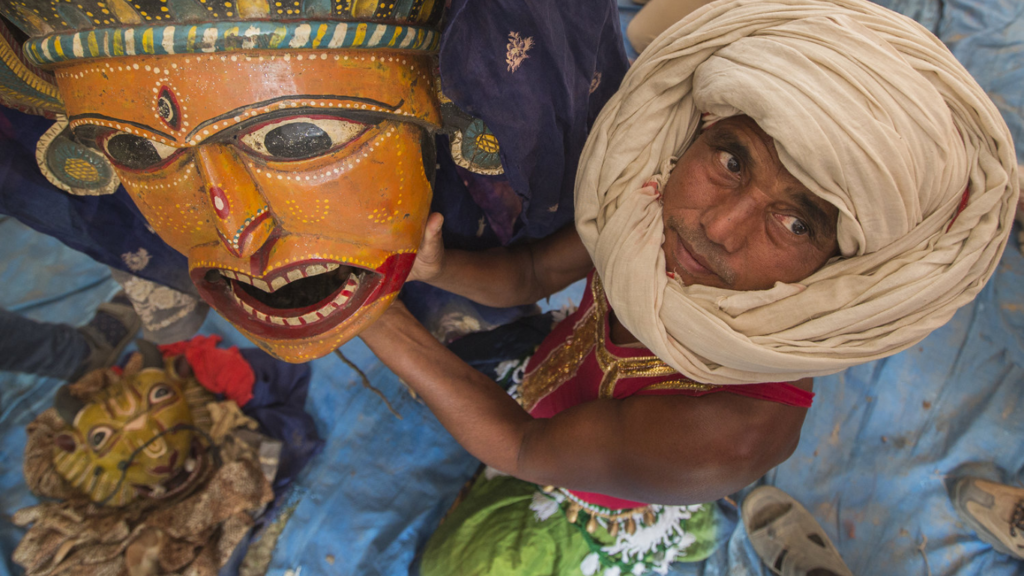
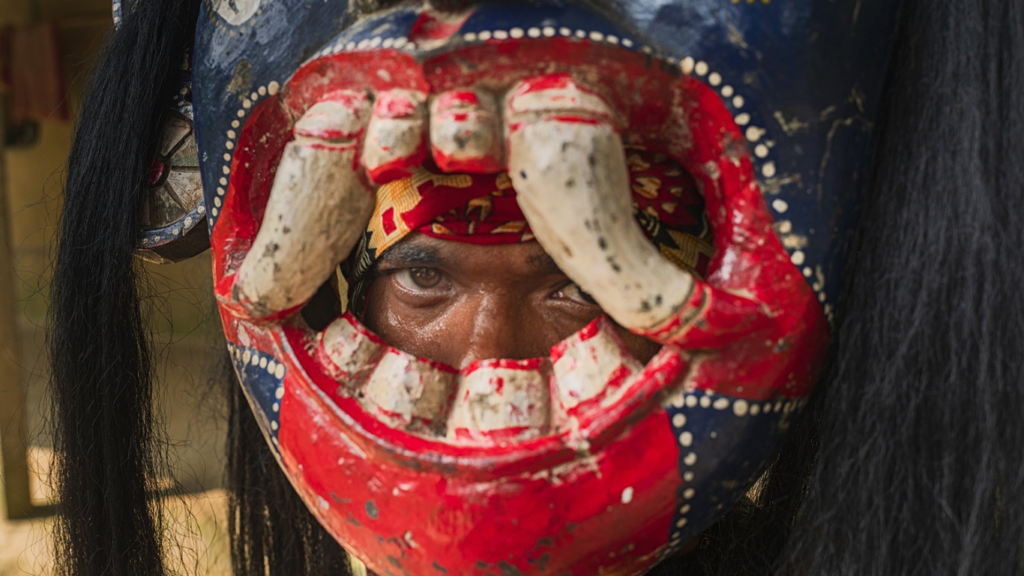
The back of the mask is curved out scrupulously by the artists and then it’s sanded by hand. Finally the artists paint it with their desired colours. On an average, our artists take 3 to 4 days to complete a mask however much depends on the size and the complex motifs of the mask which might increase the production time. The responsibility of mask making is shared by the all the family members who wholeheartedly participate to make them although the primary responsibility of cutting and curving are done by the male artists. The entire credit goes to our artists whose commitment and devotion towards the art has kept it alive. Currently around 250 to 300 artists are engaged with this art. The word Gomira has been derived from the village deity named Gram Chandi. The deity is considered to protect the village from ominous forces. The craftsmen making the Gomira masks are the ardent worshipers of Adi Sharkti who is considered the Supreme Goddess according to the Shakti sect of the Sanatana Dharma. Each village has a dedicated temple devoted to a Goddess.
The masks are kept before the Goddess during Nishi Puja that takes place during midnight before the dance is performed the next day. Before commencing with the performance, the dancers worship the masks to show their reverence and dedication towards the art. In a Gomira dance performance there is no vocal involvement in the form of dialogues or renditions of any sort. Hence the Gomira masks play an indispensable role during the performance and through the masks the dancers express themselves. The only musical instruments that are played during their performance are dhaak, an indigenous percussion instrument and Kashor or a bell metal plate played with a wooden stick that’s held in the right hand; instruments like Shehnai, a reed instrument of India. For the promotion of this precious art, the provincial and the central government of India have taken various initiatives for promoting the art and the artists in various ways.
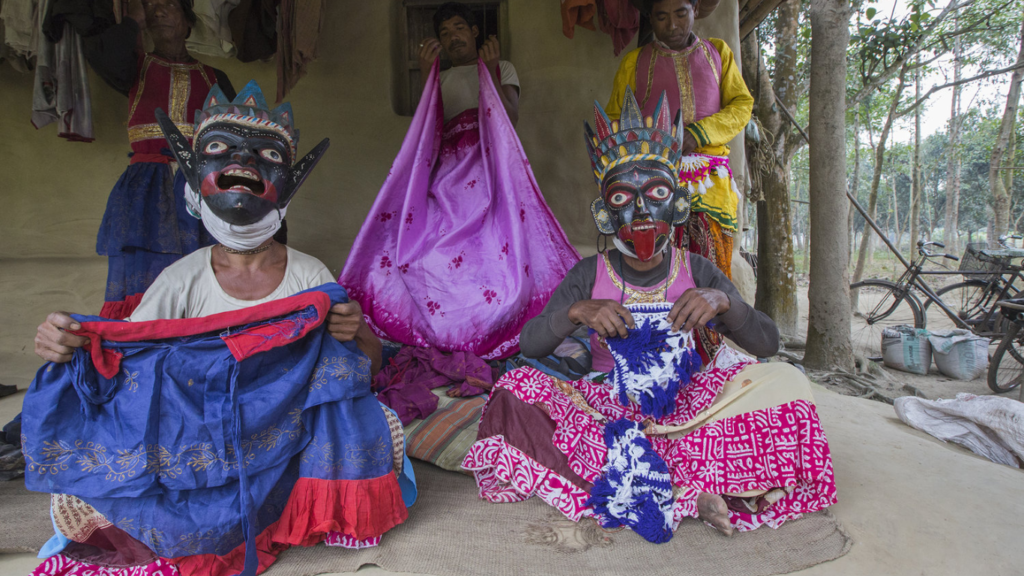
The artists are provided with various platforms like local, national and international exhibitions and fairs to showcase their artistic acumen; various workshops and awareness camps are organized at various levels to create more awareness among people. These beautiful wooden masks are the showpieces that would take you back in time and open up a world of imagination for you. Ideal for all locations, our wooden masks are exotic and exquisite which would draw the attention of everyone visiting you.
PLACE A BULK ORDER WITH US
Whether you want to place a large customised order for a single item or an assortment of multiple handicraft products, we can work things out for you ! For years we have been successfully delivering customized orders for our clients and satisfying their expectations – so just state your requirements to us and relax, we will handle the rest for you.
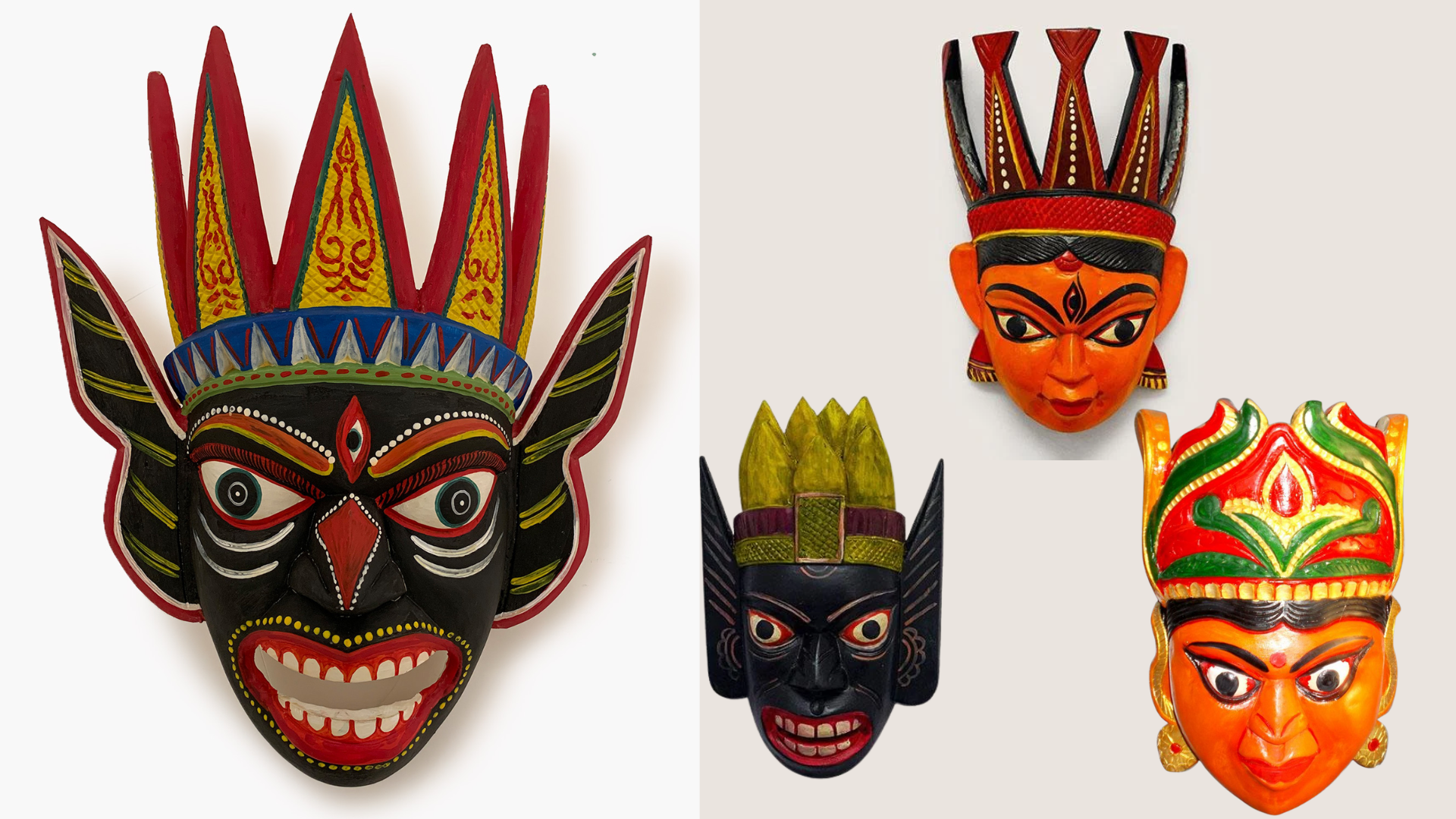
Product Costume
Our entire range of handcrafted Wooden Masks are made using natural colours and adhering to sustainable manufacturing techniques. All our products are eco-friendly as well as biodegradable.
Quality Products
We are committed to providing handicraft products to our clients without any compromise on the quality.
100% Guarantee
The genuineness of our products is their biggest guarantee.
Price
Quality is what we mainly focus on along with a competitive pricing structure.
Online Support
We are always available for you to answer all your product-related queries.
Authentic Local Handicrafts
Experienced
Artisans

